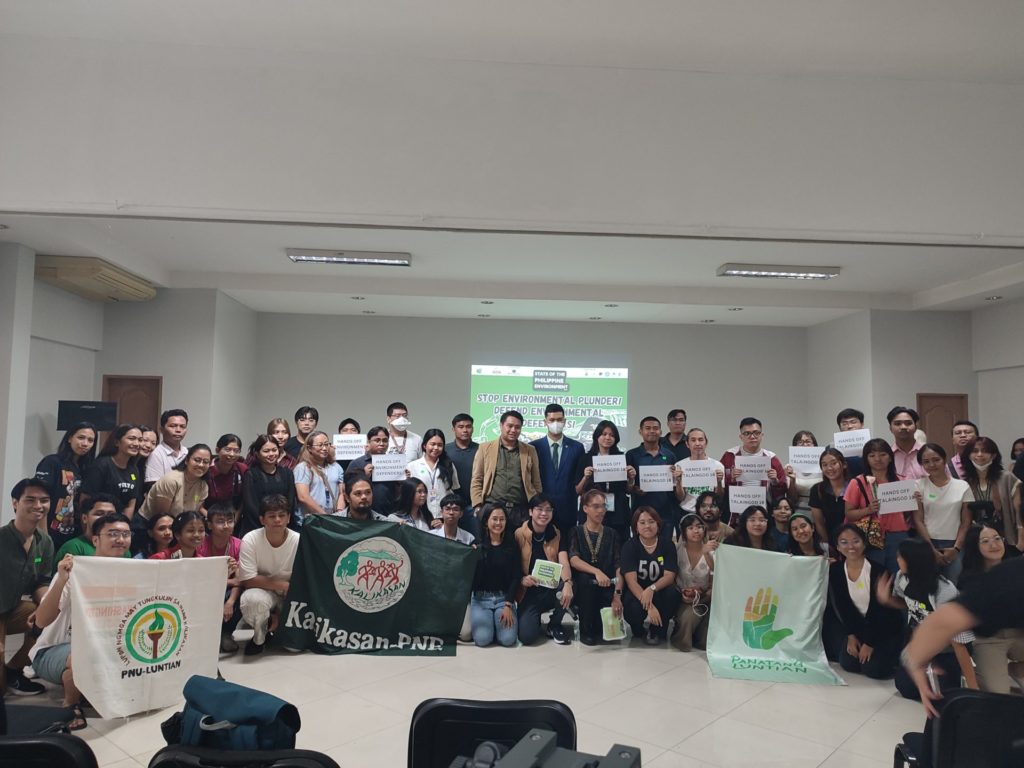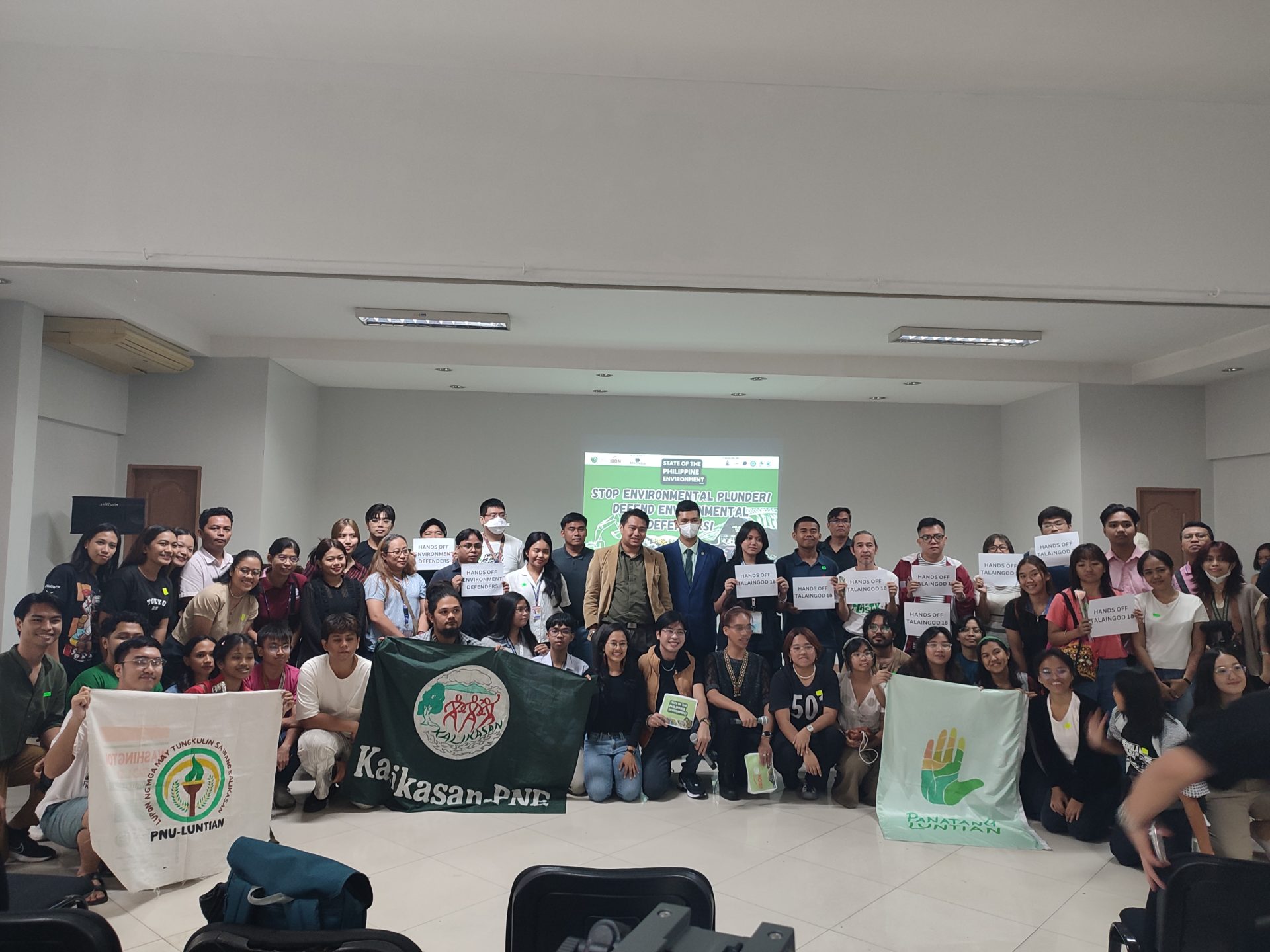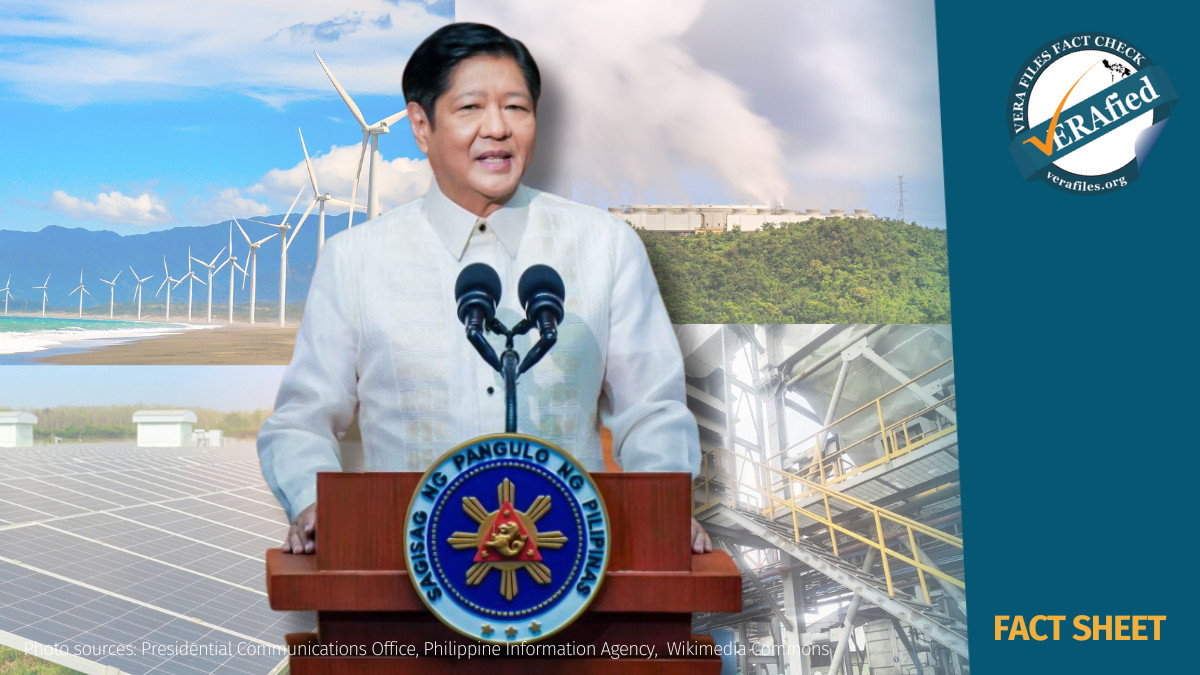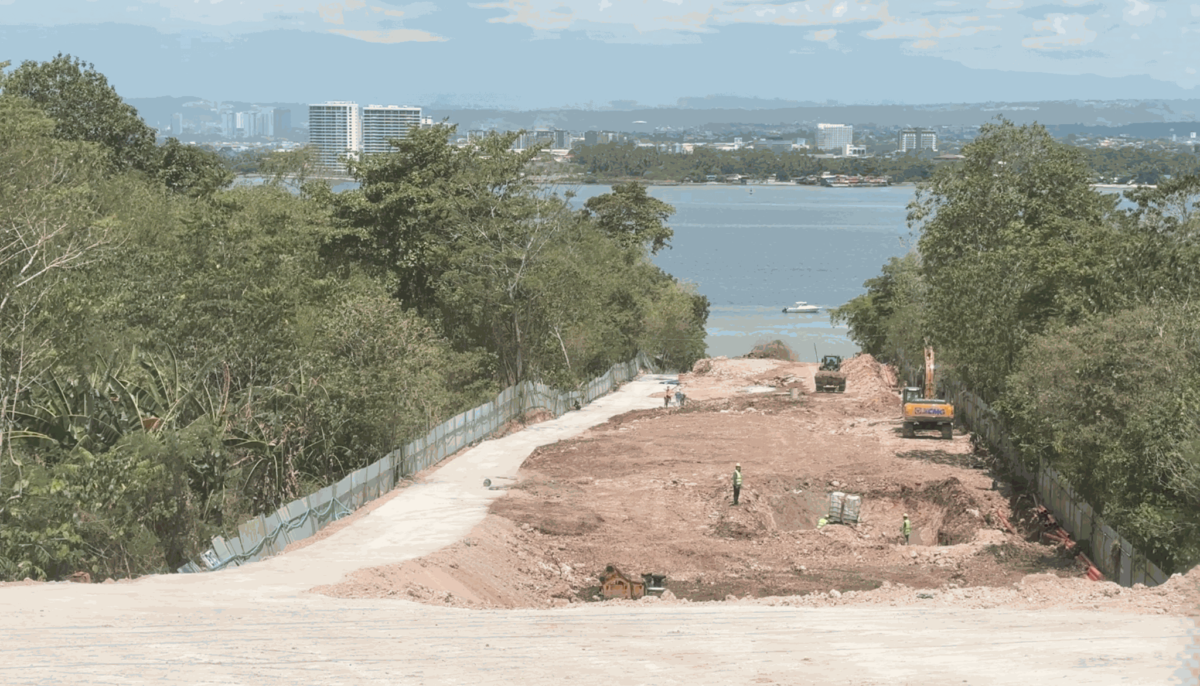Environmentalists are demanding that the administration of Ferdinand Marcos Jr. stop ignoring the rights of Indigenous People’s (IPs) as it pursues the development of renewable energy and infrastructure projects on ancestral lands.
Beverly Longid, national convenor of KATRIBU (the national alliance of indigenous people’s organizations), said IPs rights are usually disregarded since the government rarely consults them when projects are built in indigenous domains.
“Binibigyan nila ng mas priority yung mga destructive projects like mines, dams, oil exploration,” Longid lamented. “And this actually proceeds without free prior informed consent (FPIC). O kadalasan kung binibigay yung free prior informed consent, these are under duress,” she said at the annual State of the Philippine Environment 2024 forum held on July 15.

Under the Indigenous People’s Rights Act or Republic Act 8317, cultural communities must be consulted for any development projects on their land through FPIC.
The law also protects their right to remain in their lands and prohibits acts that will drive them out of their homes without consent.
Moreover, any unauthorized or unlawful intrusion in their ancestral domains without FPIC is punishable by law.
Despite the existence of R.A 8317, Longid deplored government’s use of militarization not just as a counter-insurgency measure but also to support the establishment of renewable energy plantations and infrastructures, which displaces and harms communities.
This involves deploying troops and building military camps in ancestral domains, with bombing the usual mode to clear an area.
“Nagkarooon ng sunod-sunod na bombings this year in Kalinga, Abra, and Ilocos. And all of the sites na binomba are areas na kung saan mayroong mga itatayong mga energy [plants], or there is an ongoing opposition to on-going construction of dams,” Longid said.
She was referring to the aerial bombing by the 54th Infantry Battalion in Kalinga that affected 2,700 residents last June 7. Hydroelectric power plant projects Saltan D and Mabaca are being constructed in the area.
The bombings on the borders of Abra and Ilocos Sur on April 8 likewise displaced communities.
During the first year of Marcos Jr.’s administration, data from the human rights alliance Karapatan showed that 22,391 individuals were affected by bombings in rural and indigenous communities, forcing people to flee their homes and abandon livelihoods.
Meanwhile, there have been a total of 24,670 victims of forced evacuation, also because of bombings, since Marcos assumed the presidency in 2022.
“Militarization and bombing are normally done to suppress Indigenous peoples’ movements for self-determination and liberation and defense of ancestral land,” Longid explained.
“Ginagamit ito to undermine the territorial integrity of Indigenous communities,” she added.
Aside from displacements and physical harm, Longid further noted that the bombings also result in environmental degradation, noting that some areas bombed are key biodiversity areas of the country.
Last April, a study published in npj Biodiversity showed that sociopolitical conflicts could have a negative impact on biodiversity. The study found that areas with higher conflict levels exhibited lower species richness and reduced forest cover.
While the push for green energy and infrastructure is important to progress, the environment must be considered as well, Longid stressed.
“I think we need to invest time, resources, and genuine research to find ways on harnessing all of this for the benefit of the people, not only of Indigenous peoples, without or with very minimal damage to the environment,” she added.
Environment defenders under threat
Meanwhile, defenders of the environment slammed the Marcos administration for the worsening threats against people fighting to protect indigenous communities and the green landscape.
Environmentalist Jonila Castro said, “Kung under threat ang ating kalikasan, it also means na under threat ang ating mga tanggol kalikasan.”
Castro and fellow environmental advocate Jhed Tamano were issued a warrant of arrest by the Department of Justice last February for grave oral defamation, after publicly accusing the 70th Infantry Battalion (IB) of the Armed Forces of the Philippines of abducting activists.
According to Global Witness, the Philippines remains the deadliest country for land and environmental defenders in Asia for the 10th straight year, with 281 recorded deaths in the last decade. Meanwhile, 11 green activists were killed in 2022.
“Dito sa Pilipinas, ang hirap humanap ng hustisya para sa mga tanggol kalikasan at mga komunidad na naapektuhan,” Castro said.
(The author is a journalism student at the UP College of Mass Communication and is doing her internship with VERA Files.)




